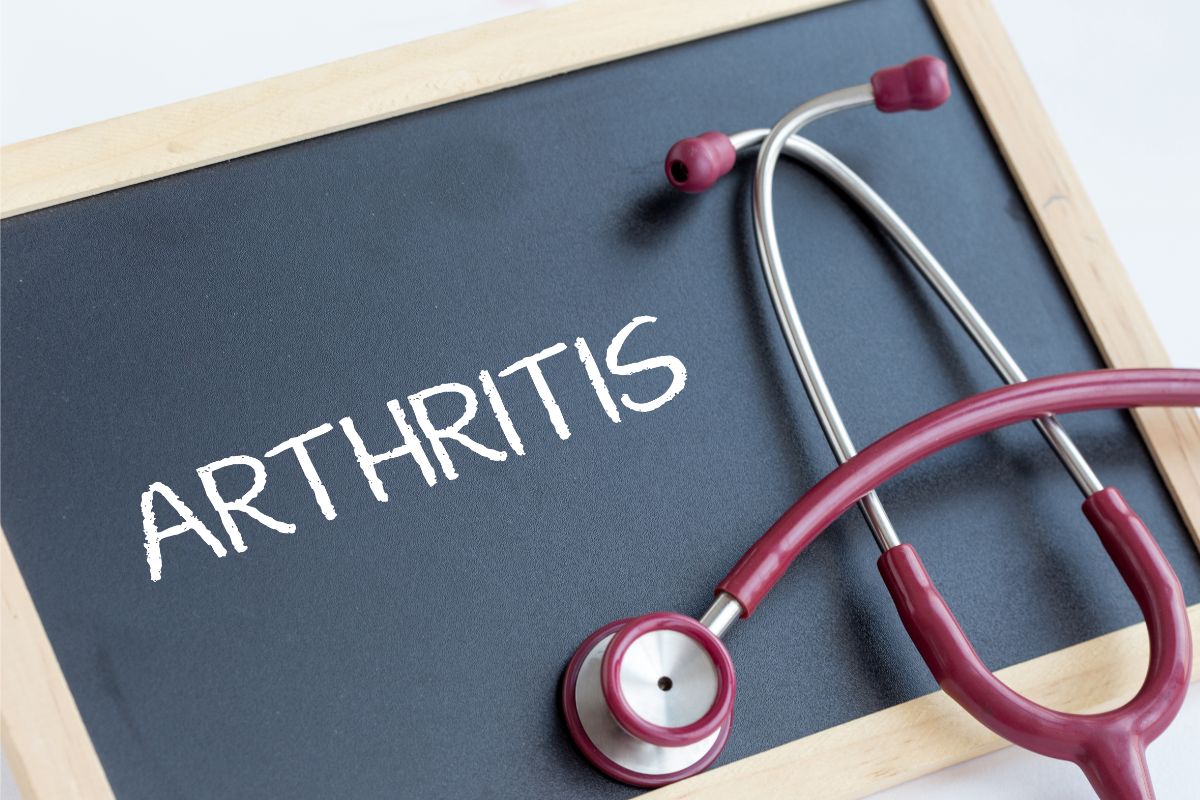Have you started to feel pain in some of your joints and are unsure as to how this has started?
Many people worry that they might have an early onset of arthritis, and so today we will look at the signs, causes, and treatment options available for those that think they might have this condition.

A big misconception of arthritis is that it is a chronic condition reserved for those in later life. However, this is simply not the case.
Even those that are in their 20s and 30s can suffer from arthritis, although something to consider is that there might be something else going on that is causing joint pain such as overuse or injury.
What Is Arthritis?
Arthritis is a general term that refers to a number of different types of inflammation of the joints.
It is associated with the wear and tear of cartilage and joints and isn’t reserved for one particular joint as it can occur in any of them located throughout the body.
Although most common problem areas or any joints that require weight-bearing such as the hips, and spinal column.
It’s worth noting that it can also affect the fingers in your hands, the large toe which is commonly seen in gout, as well as the neck.
The Weigh that arthritis works is that the cartilage in a joint can become stiff which means that it loses its elasticity.
This can cause damage over time and the cartilage can wear away which reduces its ability to reduce friction and be a shock absorber.
The actual pain is caused by my ligaments and tendons stretching, also the bones rub against each other as the cartilage becomes worn down.
What Causes Arthritis?
There are many reasons that arthritis can develop in a person.
One of the most common reasons is down to genetics, and so if you are unsure whether you have arthritis it may be worth looking at your family history for cases of arthritis.
People can also be born with Abnormalities and it can develop into conditions like scoliosis or kyphosis, which leaves these populations more likely to develop arthritis of the spine.
Another common cause of arthritis is being overweight or more likely obese. You see this most commonly in those with arthritis in their loading joints such as their knees, hips, and spine.
Something that is often overlooked is the overuse of joints due to lifestyle factors or repetitive use of that joint.
This is commonly seen in those that have active jobs, and if you are required to bend the knee a lot, for example, builders or manual laborers, arthritis is commonly seen in these populations.
Injury is also another reason that can contribute to the development of arthritis.
If you couple this with overuse of a certain joint which is most common in athletes, you can see a high risk of arthritis developing. It’s also common for those that have previously broken a bone near a joint to develop arthritis in that joint.

The Symptoms Of Arthritis
When considering symptoms of arthritis, it’s worth noting that they have typically been seen as coming on acutely.
In other words, if you are jogging along and all of a sudden you feel pain in your knee this is unlikely to be arthritis and is more likely to be a knee injury caused by the running due to impact on the asphalt or incorrect running technique.
Symptoms include:
- Joint pain and soreness which are exacerbated with continuous movement
- Pain and swelling after continued use for long periods of activity
- Pain and swelling after long periods of inactivity
- Feeling stiff after long periods of inactivity
- Swollen joints
- Enlarged Bony segments in the middle and endurance of the fingers.
We recommend that you seek out a doctor before self-diagnosing yourself with arthritis, as there may be another underlying cause for your symptoms.
A doctor will Likely run tests and ask you for your symptoms, where the pain is located, as well as run tests such as x-rays and physical exams.
How To Treat Arthritis
You can treat Arthritis on a number of different levels, and some treatments are aimed at helping the body become more healthy.
Some of the interventions used are exercises that can help to alleviate pain and to help with overall movement.
You can see a physical therapist who will give you some exercises to follow in your treatment.
Supplements can help alleviate the symptoms of pain in arthritis sufferers.
We listed our top supplements for those with arthritis; and to quickly go through those we recommend glucosamine or chondroitin, vitamin A, vitamin C, vitamin D, vitamin K, curcumin, and probably most effective all; Omega 3 oils.
Something to consider with those that are carrying excess body weight is to follow a weight loss program. this will be helpful for overweight or obese populations that are feeling pain in their load-bearing joints such as their knees, hips, and spine.
Simply reducing your body weight may help to ease the burden on those joints and relieve a lot of the pain that is associated with arthritis.
Some other treatment options that have been shown to help those with arthritis, such as hot and cold compresses, joint fluid removal, medical injections, as well as supportive devices like crutches or canes.
Some people might be good candidates for surgery as well, and for those that have tried all other avenues, this might be a viable option for that population.
Ultimately, your doctor will help you follow the right treatment plan as it will depend on many factors which include your area of discomfort, occupation, age, medical history, and overall health.
Depending on the severity of the condition as well all likely to determine the type of treatment you receive.
Final Thoughts
Understanding arthritis and how it develops can help you with your treatment, and following the advice above we recommend that you seek guidance and follow the prescribed treatment plan to help you with your permission.
- 7 Shocking Reasons Your Weight Loss Diet Is Failing: Science Explains - October 3, 2024
- How Sleep and Immune System Harmony Boosts Your Health? - September 10, 2024
- Unlock the Transformative Power of Mindful Eating for Radiant Health - September 10, 2024








